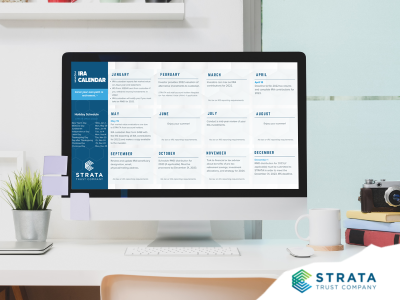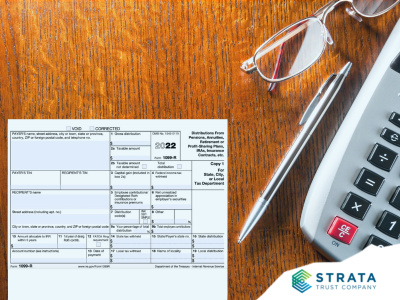Is your self-directed IRA invested in an asset other than publicly-traded stocks, mutual funds, ETFs, bonds, or precious metals? Perhaps you’ve invested your IRA in a tangible asset like real estate, or in an investment that allows you to pool capital with like-minded investors like a limited liability company? The possibilities for your self-directed IRA are endless, but if you choose investments that do not have a readily available fair market value (FMV), you or your investment issuer will need to provide market valuations to comply with the administrative and reporting requirements of IRAs.
IRA custodians are required to report the values of the IRAs they custody to the IRS on Form 5498 each year. In addition to tracking IRA account balances and the types of alternative investments held in IRAs, the IRS requires an asset’s value to be reported on Form 1099-R when the asset is distributed from an IRA, such as when a hard-to-value asset is withdrawn in-kind (i.e., without liquidating).
Investors that hold Precious Metals in their STRATA IRA do not have to worry about annual FMV reporting due to the availability of periodic spot value updates. Likewise, public investments, mutual funds, ETFs, and bonds also have FMVs readily available. If your STRATA Trust Company (STRATA) IRA is invested in an asset that does not have a readily available market value, as the investor, you are responsible for obtaining an accurate FMV (or good faith estimate) at least once per year. Additional valuations may be needed if there is a major change in asset value, and prior to one of the following events:
- The calculation of a Required Minimum Distribution
- An asset is converted from a Traditional IRA to a Roth IRA
- A current-year contribution is recharacterized between a Traditional IRA and a Roth IRA
- An IRA owner dies and passes the alternative asset to beneficiaries
Who is a Qualified Appraiser?
If your IRA’s hard-to-value asset does not have an investment issuer to provide valuations, you will need to engage a credible, qualified, independent third party to obtain an objective and accurate valuation. If you elect to have an appraisal done, it should be performed by a certified property appraiser. Beginning in 2023, STRATA will also accept a broker’s price opinion if performed by a real estate professional using STRATA’s Real Estate Valuation form. A tax appraisal value is not sufficient, as it is not always indicative of the actual value of a property.
You may need to provide documentation to support how the value was ascertained, as well as a notarized signature of the third party providing the valuation. An explanation or additional information will be required if there has been a change in value of 50% or greater. If you don’t have a qualified appraiser, STRATA can provide a list of several valuation companies. You may want to contact a few different appraisers to get a range of options and cost.
FMV Timeline
Valuations must be provided to STRATA in time for STRATA to meet the IRS’s reporting deadlines. For 2022 tax reporting, May 15, 2023, is the deadline to provide a December 31, 2022, valuation for the hard-to-value investments in your IRA. If a valuation is not provided in time, you could incur a late fee. In January of 2023, STRATA started communication with investment sponsors and investors regarding their FMV requirements and provided a 2023 FMV timeline.
Next Steps
Investors that will need to seek a certified appraiser or a broker’s price opinion should start the process as soon as possible to avoid penalties associated with missing the deadline.
STRATA’s Knowledge Center is full of information on Fair Market Value. If you have any questions or concerns regarding the FMV process, contact our self-directed IRA experts.









